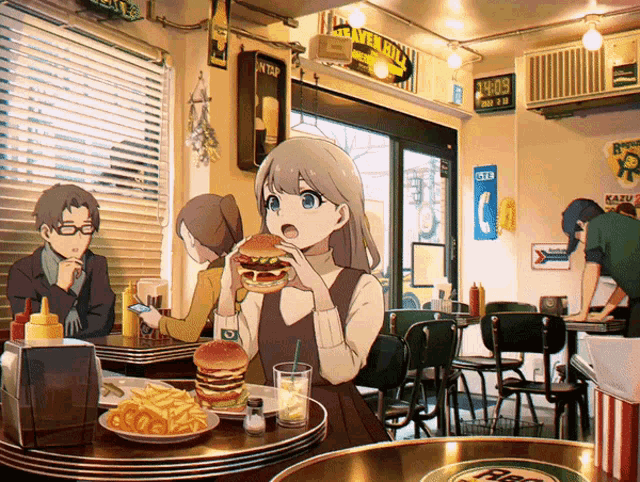People often do not know how to differentiate the price of an item and the value of an item. The value of things is not something that can be explained easily. But in this case we will use a simple thinking process and hopefully give an insight on how we can move towards looking at the price of an item to the value of an item.
You may have known similar examples like this: Ordering a steak in a normal food shop may cost $10. But ordering the same type and weight of steak in a fanciful restaurant will cost you $50 perhaps. There are a whole range of prices in between and of course much higher prices elsewhere. But you get the gist. Perhaps the steak in the fanciful restaurant taste better, but unless the chef at the local food shop has awful skills, chances are we will not be able to differentiate much on the taste of both steaks. Even if we could, perhaps the difference would not warrant such a difference in price.
But why then, do people still go to the fanciful restaurants? For one, perhaps it is the ambience, the social status one derives from eating over there, or perhaps some guy just wish to impress his girl (we all do). Chances are the restaurant has a better steak quality too. It is the overall package of the experience, sitting in a nice, quiet and elegant place having the best of the service serving you quality steak. The whole dining experience is what gave the steak that kind of price.
But what about the value of the steak? How much is it really worth? As mentioned earlier, the value of an item cannot be explained easily, and more often than not is dependent on the individual. We use another common example. As individuals, many of us go on overseas holidays every year. We would often choose off-peak seasons if we can help it because the air tickets are cheaper, although those with family would have to cater to their children’s school holidays and go only during that time (the peak season). But whatever the reason, we only go once or twice a year usually, simply because the air tickets are expensive, and overseas trip incur a lot of other expenses such as hotel stay.
Yet there are companies who frequently send their employees overseas for work. It can be as extreme as all year round, a particular employee spending most of the time flying and staying overseas, coming back to the local country for reporting purposes and getting the next assignment. Yet despite the high cost of doing that, companies still sent their staff on overseas work trips. Why? Because the value they can get far outweighs the cost of the trip. For example, a round trip and a 5 day hotel stay probably would cost the company $3000, but sending the employee to complete a project overseas would nett the company perhaps $20,000 in profits. We can therefore see that there is value in the company sending its staff overseas all year long.
But how can we determine what is the value of something to us? Perhaps I would suggest that as a start we measure it in terms of our time, not the price. For example, I am earning $5000 a month after taxes. In a month I work 22 days, 8 hours a day. That would mean that I am earning money at a rate of $5000 / 22 days / 8 hours = $28.41 per hour. Now if I want to impress a girl in a fanciful restaurant, a steak for a person costing $50 would mean I will need to spend $100 for the dinner (I would need to eat too, as it is kinda awkward if I stare at her eating and I only drink plain water). The final bill would come to be $100, but I would calculate it as using about 4 hours of my labour, basically half a day’s worth of work. Now I need to ask myself, if a dinner cost me half a day of effort, is it worth it? Perhaps this is the day I am going to ask her to be my girlfriend, then that would definitely be worth it. But if I am going to do it everyday, then no, it will not be worth it.
On another common example. Ladies usually like to buy luxury leather bags or wallets. We take a Chanel bag for example, which cost about $4000 (I am just making a rough guess here). Using a salary of $5000 a month, that would mean that the bag would cost me 80% of my labour for that month. If we take it a step further and measure it in terms of how long we take to save up the money, the period of time would be even longer. Is it worth it? That would have to depend on the individual.
Every person has different dreams, goals, things to look forward to and things that define them. To some, having more money in the bank is more important. To some, having the social status is more important. To some, money comes more easily. To some, work is difficult. There are those who come from a well-to-do family, and those whose family depends on them for living expenses. Whatever it is, whatever they spend on, there is nothing legally wrong (although it might be financially illogical) with it.
But whatever it is, remember that time and energy is the only finite resource we have. Your time in your 20s is worth much more than your time in your 80s. You do not have as much energy in your 50s compared to your 30s. Your earning power would probably hit a peak in your 40s and drop down from there. The above guide only serves as a simple example in calculating the value of money at that particular point in time, using our hourly or monthly earning power as a quick reference. I use that often, but I also often compare it to the bigger scale of things. Will I still be using that fanciful car 20 years down the road? Is it important to look as if I am of a higher social status and gain the approval and recognition of people whose life or death does not even matter to me?
If you are reading this article, chances are you are also aiming for financial freedom. Then the criteria for our decision making should not be as broad as whether it is legally or morally wrong or not, nor should it be whether it is within your rights or not. It should be whether your decision makes financial sense or not, taking into consideration the wider view of things.
For example, buying an average car in Singapore cost about $120,000. Our cars are expensive because of the high taxes. In terms of labour, I will need to work quite a long time to pay it off. But if I spend that $120,000, that would mean I have $120,000 less to snowball my wealth. Over the 10 years which I can use my car (Singapore has a limit of 10 years for car usage, but you can extend it by paying another fee), the $120,000 which I did not spend could snowball to $200,000 considering an annual returns of 6%, which is not much. At the end of 10 years, I would see a minimal difference of $120,000 + $200,000 = $320,000 comparing the situations of me buying and not buying a car. Take note $120,000 is a very conservative figure, for you still have to pay for petrol, parking, taxes, insurances and maintenance. If I include all these in, and my investment returns is more than 6%, I could easily reach a $400,000 difference. $400,000 is a significant step towards financial freedom. Not a step that would grant me my financial freedom, but it is a significant step in a journey where every step counts.
Stack everything up, from buying luxury bags, eating in fanciful restaurants, buying cars, going for expensive holidays etc and you could see the gap widening over the years. You may not realise it for every single spending, but stack it up and there would be a difference you never imagine it to be. Take note that I am not saying that we should live like the homeless. Go eat in the fanciful restaurant if you need to, either as an occasional reward to yourself or to impress the person you wanted to for so long. Go get a car if it brings extra value to you. Go for your holidays if it does good for your mental health. But when spending, know what to spend on. If I need a car for transportation purposes so I can drive my clients around, would a Toyota be sufficient instead of a BMW? If I am going for a holiday, would staying in a normal decent average hotel be more than sufficient compared to paying 2x more and staying in a 5 star hotel?
The first step to calculating the value of things is to measure it against your labour hours. The second step is to measure it against the grand scheme of your plans. I know I have not covered all aspects, but if one can get this two points down, then he would be able to make more financially sensible decisions. We are unable to make a 10/10 financially sensible decision all the time. I make stupid decisions too. But the more financially correct decisions you make, the closer you are to your goals.
人們普遍不會分辨一個東西的價格或價值的區別。東西的價值因人而異,也不好解釋。但是今天我們就用一個簡單的計算方式來探討一個東西的價值。
大家應該熟悉這樣的一個例子:在一個普通飯店裡叫一個牛排可能得花10塊錢,但是同樣的牛排在一個高檔些的餐廳可能需要50塊錢。當然,餐廳的牛排可能比較好吃,但是除非普通飯店裡的廚師是個庸才,不然即使分辨得出牛排口感的不同,也會發現那丁點差別是不值得花更多的這些錢去餐廳吃的。
那麼,為何人們還會去高檔餐廳?原因包括但不限於環境和情調,在那裡用餐帶來的身份地位,又或者就是想在喜歡的小姐姐面前有點面子。當然,高檔餐廳的牛排也可能真就是更好吃,但是你支付的牛排價格其實就是在為以上的各種因素買單。你是為在那裡吃牛排的總體驗付錢的。

那麼,牛排真正的價值是多少呢?就如剛才提到的,東西的價值有時不好解釋。我們用另外一個例子。新加坡很多家庭喜歡出國旅行。能避開高峰期拿到便宜機票的話自然最好,但是有小孩的家庭卻只能在放假的時候才能出國。一般來說,出國度假的費用因為較貴,所以一年最多也就旅行2次。
但是卻有公司常年派員工出國出差。即便出差費用會刷到很高,但很多公司卻不手軟。為什麼呢?因為員工出差帶回來的訂單可能遠遠超過出差的費用。那麼就不難看出為什麼出差是個合理的決定。對於公司來說,員工出差帶給公司的價值是遠遠超過費用(飛機票,酒店,餐飲)的。
那麼我們又怎麼能判斷一個東西對我們來說的價值呢?我提議用我們的時間去計算。
假設我的稅後月薪是5000塊,而一個月我工作22天,一天8小時。那麼我的時薪就是28.41塊。那假如我要帶心儀的小姐姐去高檔餐廳用餐,那麼一個牛排50塊,這一餐下來我就得花100塊了。讓小姐姐自己吃牛排,我喝水飽的概率較小。我大概也不會和小姐姐AA。那麼,100塊換算下來就是我4小時的勞動,或者是我半天的努力。我再問我自己,這一餐,值得嗎?或許當我要和小姐姐表白的那一天,這一頓牛排大餐是值得的。但是如果天天那麼吃,也許就不值得了。
我們再看另一個例子。小姐姐們喜歡買名牌包包。假如一個香奈兒小包包是4000塊,那麼以月薪5000來計算的話,這包包就是一個月80%的勞動了。如果我不按掙錢時間來計算,而是採用了存錢速度來考慮,那麼這包包的代價就是更長的時間了。那這包包值得嗎?這還得看個人了。
每個人有不同的夢想,目標,期盼的事務和定義自己的東西。對有些人來說,銀行裡有很多錢才是最重要的。對有些人來說,社會地位應該更優先考慮。對千金小姐來說,錢來得容易。對貧民來說,工作很困難。有些人出生含著銀湯匙,有些人出生被原生家庭拖累。只要錢是乾淨的,不管你要怎麼花,都沒有錯,但有可能是在理財觀點上是十分不合理的。
對所有人來說,精力和時間才是我們的有限資源。你20歲的時間比80歲的時間有價值。你50歲的精力不會比30歲來的多。個人的掙錢能力估計會在40歲左右達到頂峰,然後從此下降。以上的計算價值(代價)的方式是我個人的做法,我也通常那麼做。20年後,我還會用這個大氣的寶馬奧迪嗎?我會為了得到陌生人的認同,犧牲最寶貴幾年的生命去買一些物質的東西嗎?
我可能真需要一輛車。但是豐田的代價可能是我5年的生命,但是我真需要一個耗費我10年生命的奧迪嗎?
把所有不必要的物質東西疊加起來:車,包包,高檔餐廳,昂貴旅行等等,你就會發現耗費的生命越來越多。而這些耗費掉的生命,可以更好的利用在別的事務上。我不是說我們得過得像個窮酸乞丐一樣,也不是說我們不能給自己一點獎勵或者和要表白的小姐姐吃個牛排開個香檳。有必要的時候,能帶給你更多價值的時候,就去花。慰勞自己的快樂和美滿婚姻都是有價值的。但是你得問你自己,拿出一部分的生命來換取眼前的東西,是值得的嗎?
若要達到財務自由,就必須很清楚的知道你到底在為了什麼買單,你的每一筆用生命和精力換來的錢是否是有意義的。我不提倡斤斤計較,但是我們應該知道我們支出的每一分錢的意義。我自己也有做出任性的花銷,但是任性和無知的花銷越少,你離財務自由就越近。
切記,生命和精力是我們非常有限的資源。一旦沒了,就真的沒了。
Showing 1 - 3 out of 3
Page 1 out of 1
| - | Shop Products | Price | |
|---|---|---|---|
|
|
$99,999.00
|
||
|
|
$1.00
|
||
|
|
Price range: $69.00 through $99.00
|



In regards to eating at expensive restaurants, we need to take into consideration the whole experience. It’s not just about the difference in the food price.
An important reminder that the true riches in life are not found in possessions, but in experiences and connections.
It really got me thinking about the value we place on things in our lives. The way you’ve explored this topic, discussing both material possessions and intangible aspects like time and experiences, is thought-provoking.
To be honest I didn’t think about this when I buy any expensive stuff. This article is worth sharing
This is a really great post to read. For me the price of a gift really doesn’t matter that much. Thanks for sharing this with us
Interesting post! I know for a fact I need to value my time more and when it comes to high price items you better believe I think it over before purchasing anything
That being said, gifts given with great thought and consideration regardless of dollar amount can be more valuable to an individual than a gift tagged with a high dollar amount.
This got me thinking. I do need to value my time more.
This is a great way of looking at things. I do think it over before I buy anything expensive.
A very thoughtful post. I attach more value to things that bring me joy & enhance the quality of my life.